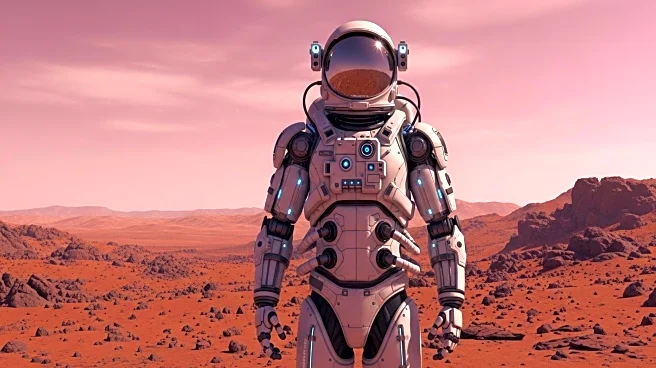What is the story about?
What's Happening?
NASA and experts in artificial intelligence are exploring the potential of 'artificial super astronauts' for future Mars missions. These humanoid robots, equipped with advanced AI, could serve as crew members on missions to Mars and beyond. The concept, discussed by Pascal Lee of the SETI Institute, suggests that these robots could perform tasks without the need for life-support systems, offering significant advantages over human astronauts. The development of such technology is expected to progress rapidly, aligning with the timelines of planned Mars campaigns. This initiative is part of a broader strategy to integrate AI and robotics into space exploration, potentially transforming how missions are planned and executed.
Why It's Important?
The development of artificial super astronauts could revolutionize space exploration by reducing the need for human presence in hazardous environments. This technology could lower mission costs and increase the feasibility of long-duration space missions. The integration of AI and robotics in space exploration could also drive advancements in related fields, such as AI development and robotics, with potential applications in various industries. The success of this initiative could position the U.S. as a leader in space technology, influencing global space exploration strategies and collaborations.
What's Next?
As the technology for artificial super astronauts advances, NASA and its partners will likely focus on testing and refining these systems for practical use in space missions. This could involve collaborations with private companies and international space agencies to develop and deploy these technologies. The timeline for deploying artificial super astronauts will depend on technological advancements and the outcomes of ongoing research and development efforts.
Beyond the Headlines
The ethical implications of creating artificial super astronauts are significant, as these entities could challenge current perceptions of life and intelligence. The development of such technology raises questions about the rights and roles of AI in society and space exploration. Additionally, the success of this initiative could lead to a shift in how humanity approaches space exploration, potentially prioritizing robotic missions over human-led ones.















